Permanent Vacation (1980)
“It’s better to think that you’re not alone when, you know, you’re drifting — even though you are.”
|
Synopsis: |
|
Genres, Themes, Actors, and Directors:
Review:
That final project was Permanent Vacation — and this helpful overview clarifies why Jarmusch chooses to have his protagonist stop by a screening of one of Ray’s films, The Savage Innocents (1960): … though the man he’s seated next to in the lobby (Frankie Faison) is actually discussing the Doppler Effect, not the movie. At any rate, to round out this review, I’ll go ahead and describe a few more things that “happen” in the script, described by Allie (Parker) thusly:
SPOILERS AHEAD – Allie reads out loud to his girlfriend from the surrealist poetic novel “Maldoror and Poems” (1978) by Lautreamont: “I was not present at the event of which my daughter’s death was the result. If I had been, I would have defended that angel at the cost of my blood.” – Allie tours the blown-up remains of the home where he was born, encountering a veteran (Richard Boes) while there. – Allie visits his mother (Bolton) in a mental institution while an older woman (Evelyn Smith) in the nearby bed bursts repeatedly into laughter. – Allie walks by a crying Latina (Maria Duval) in her slip on a back porch stoop, and can’t understand what she’s saying. – Allie encounters a saxophonist (John Lurie) who plays a song for him. – Allie is offended when a young woman (Suzanne Fletcher) asks him to drop her letter in a mailbox, and shows his annoyance by quickly stealing and driving away in her car when she gets out to do so herself. – Allie sells his “new” car to a Budweiser-drinking dealer for $800. – Allie encounters a similarly-dressed hipster near a ship bound for Paris: … and heads off on a cross-Atlantic adventure. The End. Jarmusch’s next major film was Stranger Than Paradise (1984), beloved by many but not me. Suffice it to say his work is simply not to my tastes. To be fair, however, I certainly remember the days when dialogue like Jarmusch’s felt much more profound and relevant. As Allie puts it:
Notable Performances, Qualities, and Moments: Must See? Links: |
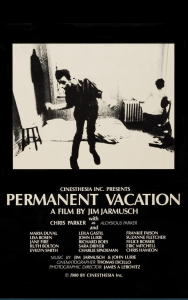
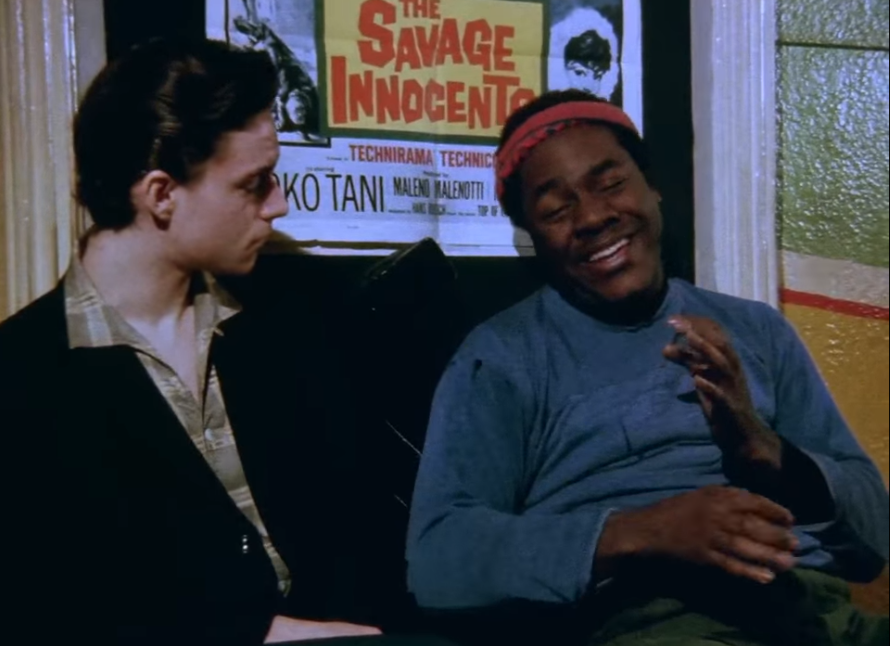
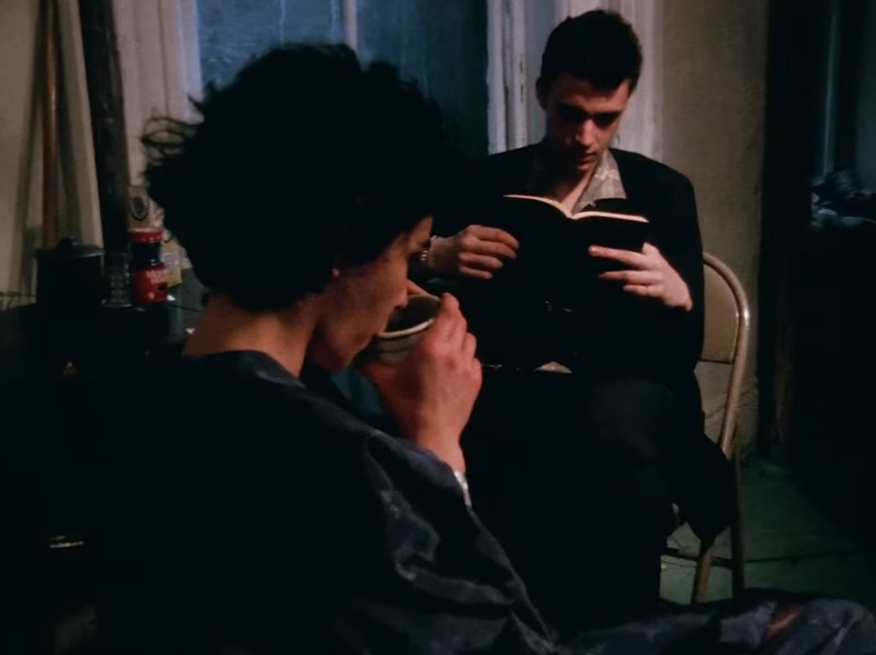
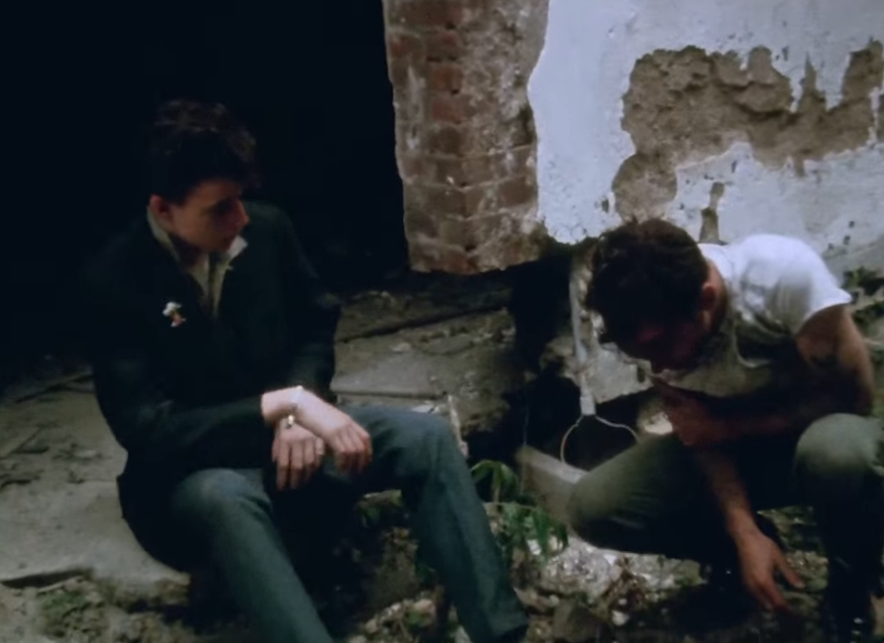
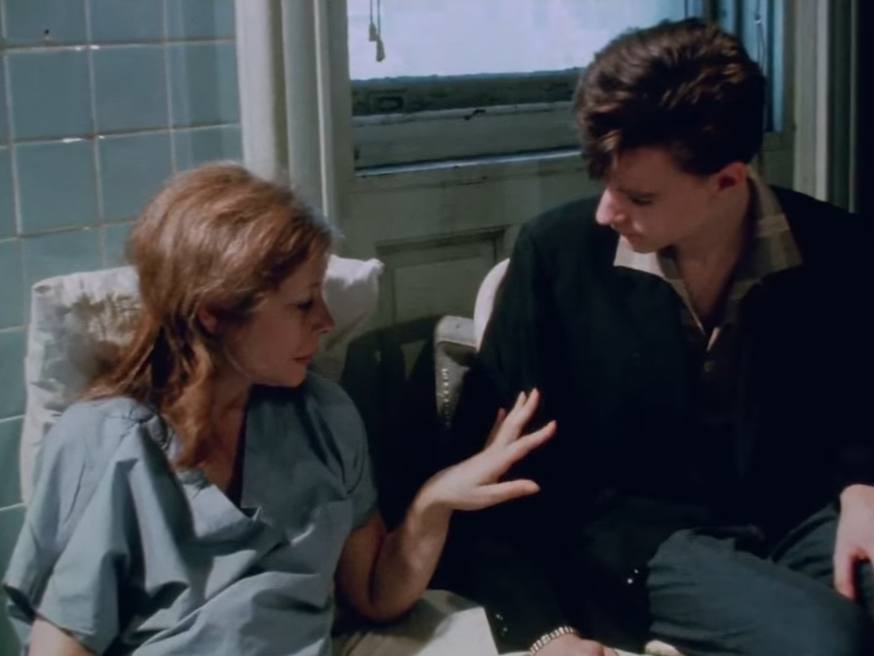
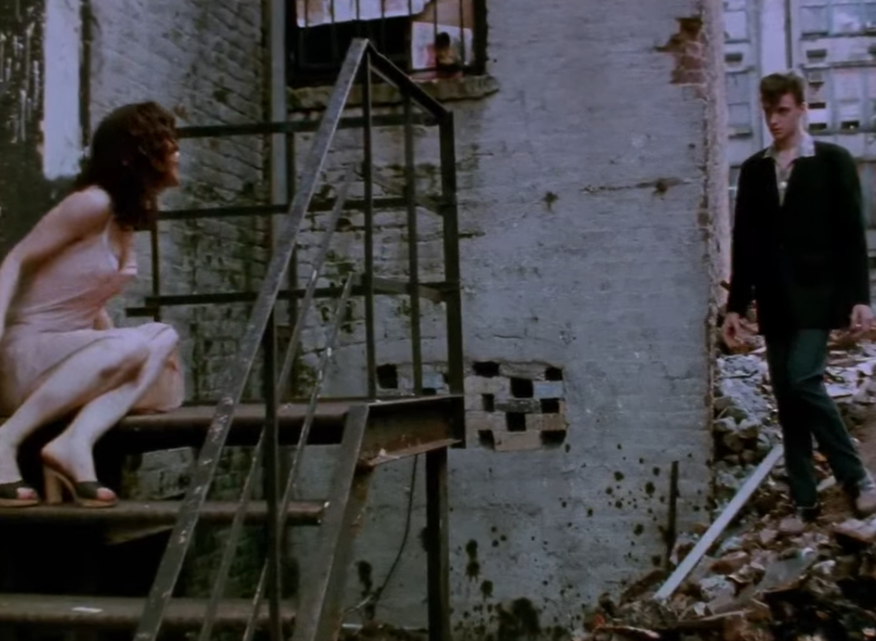
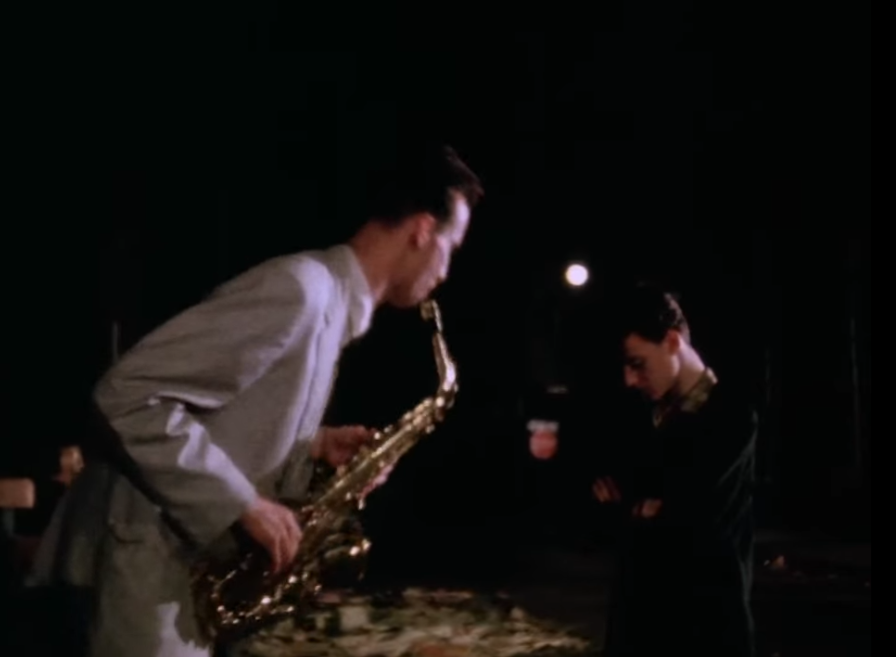
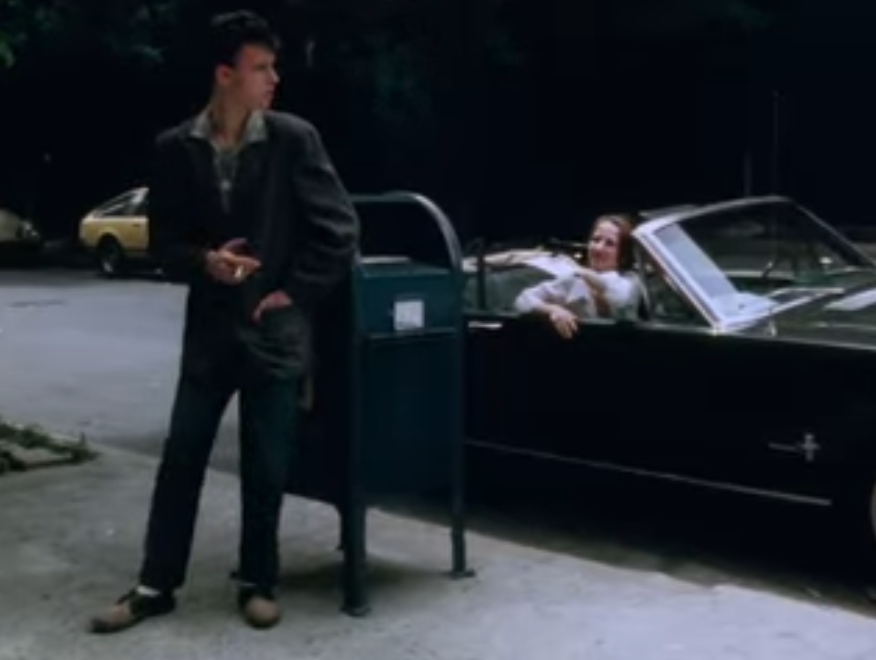
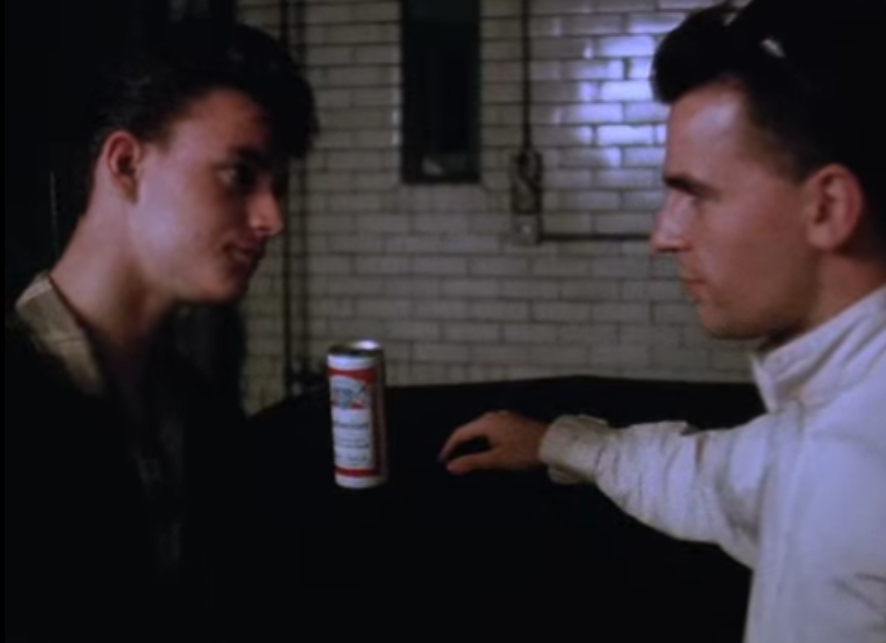
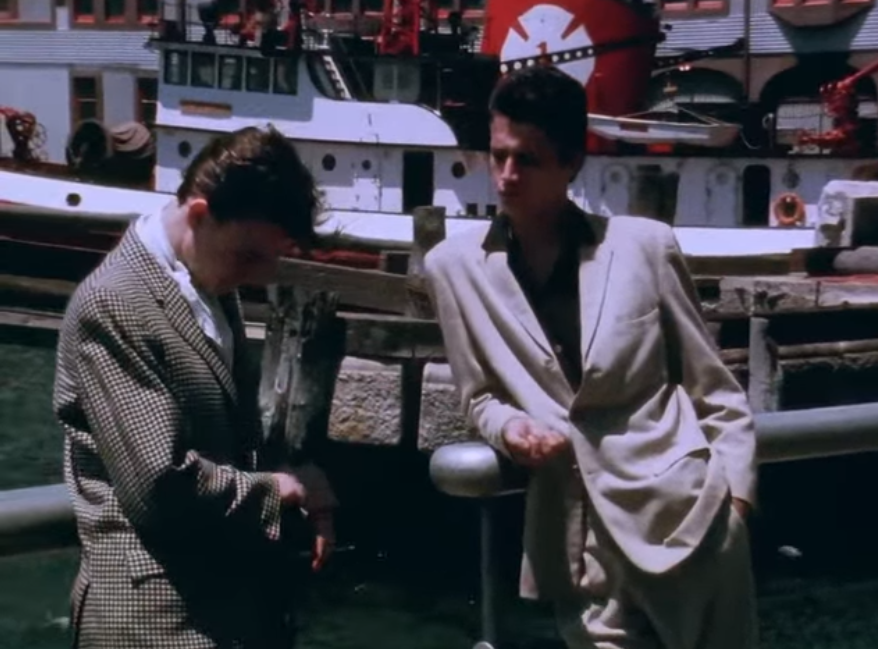

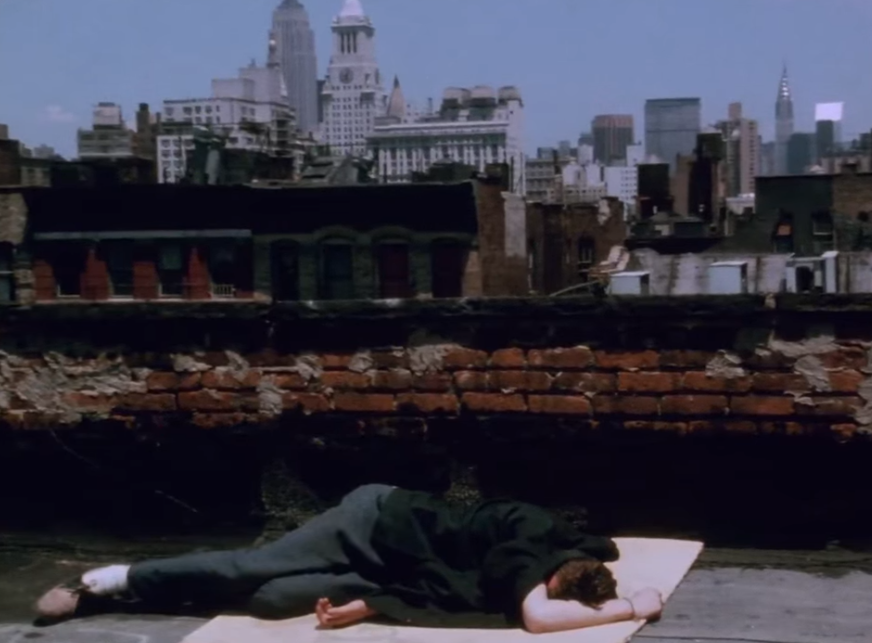
2 thoughts on “Permanent Vacation (1980)”
First viewing (7/10/22). Skip it.
Unsurprisingly, Jarmusch’s shoestring-budget debut is a s-l-o-w-moving, mind-numbing bore. Even at a mere 74 minutes, it feels e-n-d-l-e-s-s.
I am not surprised IN THE SLIGHTEST at your response! 😉